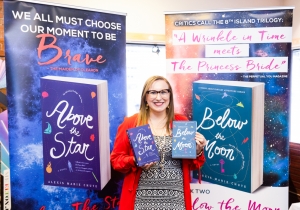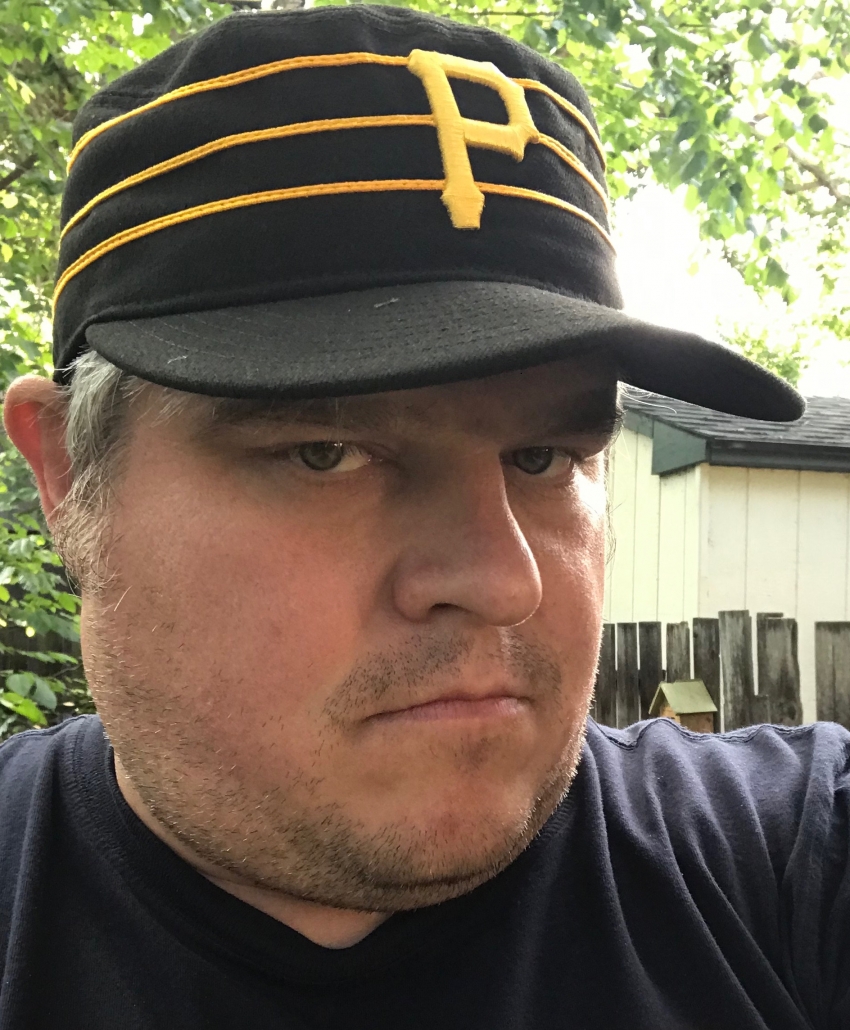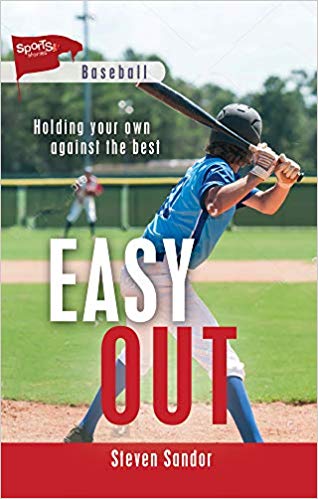Welcome to Writer Wednesdays!
Can you believe we are already halfway into January? Holiday decorations have been put away, kids’ sports and other activities are back in the swing of things, and some of my friends are already counting down till next Christmas.
I love January – and not simply because it’s my birthday month. January is a new beginning!
With every new beginning comes a great opportunity to look back. It is 2020 after all, and you know what they say?
Hindsight is 2020 : )
When I look back at my life, there are many twists and turns I would change if I could. Decisions I would undo and opportunities I would jump at. Things I took too seriously and others I took not seriously enough.
HOWEVER, I am also truly grateful for my past as it provides amazing fodder for my writing life.
Plus, I’m happy with my family and friends, the lessons I have learned, and the ways those lessons have stretched and grown me as a person.
I hope you feel the same way – that your past inspires you – and if not:
- Live more
- Create memories
- Make mistakes
- Embrace adventure
- Make fear your friend
2020 is an amazing opportunity that I hope we all embrace with open arms and ready pens.
I was worried that writing this blog would (A) become a burden, and (B) that I would run out of things to say. On the contrary, I have been INSPIRED. Having a regular writing routine is a gift, plus I am learning so much from all of the Writer Wednesday author interviews! How about you? Rebecca Loomis, Marty Chan, Elise Holland, oh my!!
Today I have the pleasure of introducing our next guest author:
Steven Sandor!
I have known Steven for years. I always enjoy our chats about kids, writing, and Avenue Magazine, where Steven is the Editor. Steven is witty and ridiculously creative. I hope you enjoy his interview below and check out his books.
Author Interview:
When did you know you wanted to be a writer?
When I realized I wasn’t handy, didn’t have a head for business and really had no marketable skills. So, pretty early. I saved the world from the worst handyman ever.
Who were the authors that influenced you as a youth, and in what ways?
That’s easy. The Hitchhiker’s Guide to the Galaxy changed my life when I was a teen. I read the series, listened to the radio show, watched the BBC series. It took a while for me, as a kid in Catholic school, to grasp the atheist overtones of the book. But it was funny and wonderful and cynical and, yes, even a bit hopeful. It was everything my writing isn’t.
When I was in university I got the chance to have lunch with Douglas Adams and, for me, it was like meeting a rock star. Of course, it wouldn’t be a good story if I didn’t mention the fact that the interview went terribly… We were in the lobby of a Toronto hotel and the Blue Jays were just about to clinch the American League pennant. Every TV had the game on. There was a buzz. And Douglas was so annoyed by it all… I was sitting there torn between two things I absolutely adored, the Guide and the Blue Jays, and I was a kid who really didn’t know how to focus all that well. Eventually, he got frustrated with me, I was angry, so I told him the ending of his latest book didn’t make any bloody sense. I mean, who was I, to tell off Douglas Adams? And then he said “you’re right.” He then talked about how hard it is to finish books, and then the interview turned. We had a great chat after that. Oh, and the Jays won.
How did it feel when you got to hold your very first advanced copy of your book?
The funny thing about writing a book, is that it comes out so long after you’ve read it and re-read it and revised and revised again and gone through the proofs and one more look at the galleys. So, by the time it comes out you’re actually kind of tired of it, maybe in the same way you get tired of a song that you used to love. I mean, you get to the point of where you’re kind of sick of your own book. Really. It’s something you’ve loved for years but then you’ve read it and re-read it and now you begin to dislike the parts that you once thought were really good.
It’s totally natural to hate your own book by the time it comes out. I know I am not alone in this. So I guess the feelings I got when the first box of books arrived, well, there was a lot of doubt. “What if this is really bad?” And, by the time the book comes out, you’re already working on a bunch of new projects. The book that’s new to everyone else is terribly old to you. I’ve actually had to re-read chapters of my own book before a radio interview to make sure I could remember the bits I wrote.
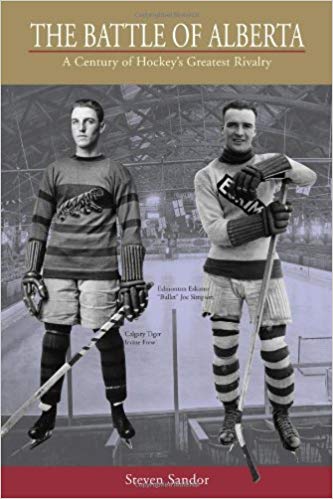
What was the inspiration behind your book(s)?
I take a lot from, well, life. My new book, Easy Out, is about a really bad baseball team that ends up playing in an Alberta rep league that they shouldn’t be in. My son played AA ball last year, I was one of the assistant coaches, and I took a lot of stuff from the games and used it to fuel the book. I literally wrote parts of it in hotel rooms while we were on rep baseball road trips.
What was your publishing journey like?
I don’t think of it as a journey. A journey suggests a plan or some kind of road map. Life doesn’t work like that. It’s all about taking advantages of opportunities when they are presented.
I got my first book deal (“The Battle of Alberta”) because I’d got a contract writing material for a heritage website about hockey history. I had so much material, then I was approached about doing a book. I said yes.
When it came to my YA novels, I was asked if I’d like to pitch a book, simply because of my extensive background in soccer and the fact I’d done so much soccer writing and broadcasting. As well, the publisher wanted YA books set in the prairies. So I thought “why not?” and here I am six or seven novels later.
I know to a lot of writers who are starting out, my story will be more annoying/enraging than it is inspiring. They’ll feel that maybe I was handed opportunities that others might not necessarily get. But understand that I’ve been doing magazine, newspaper and broadcast work for a long time, so through that I’d built up a body of work and, I guess, somewhat of a reputation. I’ve definitely paid my dues. I spent a lot of time working at small-town papers and working paycheque to paycheque editing and writing and wondering if I’d ever have to get a real job. But, looking back, all those hours and days and weeks and years of work I’d put in banging out article after article, well it allowed some doors to be left ajar for me. It was up to me to open them all the way.
What advice do you have for aspiring young novelists?
There isn’t a vocation out there that has more self-help tomes. It’s amazing how many people who say they want to write then go to as many seminars as they can so they can avoid, well, writing. There’s people who’ve got a writing credit or two to their names who are eager to give you seminars on how to be a better writer.
The writing business has created a cottage industry of seminars and classes and conferences and get-togethers. There’s a lot of snake oil out there. You can get lost in all the advice that’s out there. Get off the treadmill of advice and understand that you actually need valuable experiences to write about, to fuel your imagination. I’m not saying all courses are bad; but understand that you don’t need to do one every weekend. Read. Go out and see the world. Do things. Write, rather than talk about writing.
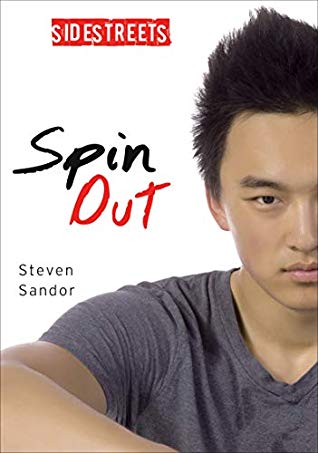
If you could have any superpower, which would you choose?
Teleportation. I’d love to think “wow, it would be great to be in New York right now” and that it would just happen. Hang out for a couple of hours and think “oh wow I’ve got to pick up my kids before 4” and pop right back to Edmonton. I’d need to keep the time zones straight, though. And I should try not to die while I was away. That’d be hard… “dad couldn’t make it home because he accidentally teleported into a nest of cobras.” But, I’m pretty sure at some point I’d turn to super-villainy. Let’s be real. In the end, we’re going to choose to be Lex Luthor, not Superman.
Where is your favorite travel destination?
Hard to think “favourite.” I feel most at home at California, though. I loved the desert. The spaces, how small it makes you feel. There’s also a feeling of uniqueness the desert, as the people aren’t easily pigeonholed. They’re hard to identify socially or politically. You can meet someone who talks about peace and love and puts art installations in their Joshua Tree backlot, but also has guns and is scared of big government.
For Canadians who have their snobbish generalizations of Americans (“they don’t have healthcare, so they’re not as good as us!”), the desert challenges every notion we have of what is America. But I also really like L.A. I know people either love or hate the place, and I’ve been advised I’d hate it if I actually lived there. But, heck, do I like visiting the place.
When you’re not writing, what are your favorite hobbies?
My wife and I are lucky to have two awesome kids…. our son and daughter. I coach youth basketball and have done some coaching work in youth baseball. I do broadcast work, I’ve done colour commentary on FC Edmonton games for almost a decade. I absolutely love Arsenal, so this season is killing me. I like comic books and very loud obnoxious music.
The best music to write to is Slayer’s Reign in Blood. And, well, if I need to clear my head, a good long drive will do that for me. I find driving my “mid-life-crisis car” super-relaxing. The idea of taking the Mustang out on a long road trip, to feel those horses on the open road, that’s a wonderful thing. I think the Mustang is one of the great achievement of American civilization. I would love to take it down to the desert and blast up and down the 29 Palms Highway.
Where can people find you online?
Of course, at Avenue magazine, which I edit: avenueedmonton.com
On Twitter: @stevensandor
And my own site, stevensandor.com
About the Book:
Westlock is an hour north of Edmonton, a prairie town with a long baseball history. But registrations are down, and there are only enough kids in town to fill one team. So Mo Montpetit’s team is entered into the Baseball Alberta AA league. All the kids registered will be playing rep ball. No tryouts needed.
Mo’s dad is a baseball legend in Westlock. And that’s Mo’s problem. Mo isn’t very good. He can’t hit a rep-level fastball. And as the season starts, the strikeouts and errors mount. The Westlock team loses game after game. How can these kids, not ready for rep ball, compete in a league well above their heads? And how can Mo step out of his dad’s long shadow?
Thank you for joining me for Writer Wednesdays!
Catch you next week!
Happy writing,
– Alexis Marie Chute
